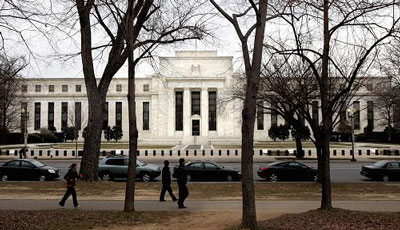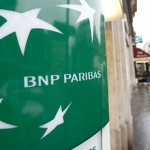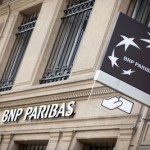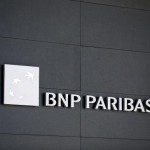Banks face intensified sanctions probes in U.S.

Following BNP Paribas’ record $8.9 billion in penalties for violating U.S. economic sanctions, federal and state authorities are intensifying investigations of other foreign banks over signs of similar infractions.
At least six banks in Germany, France, Italy or Japan are among the institutions that could face fines or forfeitures for processing transactions linked to countries that the U.S. has designated as rogue nations, financial filings show.
Investigators are tracing any links between the transactions and Iran, Sudan, Cuba or other nations hit with U.S. sanctions over allegations of terrorism, human rights abuses or other threats to national security.
Federal and state authorities have jurisdiction because many of the exchanges flowed through the banks’ U.S. divisions. The Department of Justice, Federal Reserve, the federal Office of Foreign Assets Control, the New York State Department of Financial Services and the Manhattan District Attorney’s office are among the agencies pursuing the long-running investigations.
For banks, the financial stakes of non-compliance are high. BNP Paribas’ penalties marked a record for U.S. sanctions cases. But Credit Suisse, Barclays, HSBC, ING, Standard Chartered, Lloyds TSB Bank and the former ABN Amro Bank are among foreign banks that collectively paid billions more in similar settlements since 2009.
“The U.S. government has become a lot more aggressive in pursuing financial institutions that are suspected of involvement in deliberately circumventing sanctions,” said Bryan Early, a State University of New York at Albany assistant professor who has extensively researched sanctions issues.
The prospect of being cut off from the U.S. banking system or processing U.S. dollar transactions for flouting the restrictions poses “a tremendous economic threat to major financial institutions,” he added.
Nonetheless, potential violations continue emerging amid investigative pressure.
A registration statement filed in mid-March by Commerzbank, Germany’s second-largest bank, said U.S. authorities are investigating whether it handled transactions that violated economic sanctions against Iran, Sudan, Cuba, North Korea and Burma (also called Myanmar). The bank said it had turned over financial records in response to subpoenas.
“The outcome of these matters is not currently foreseeable,” the bank said, adding that it “might also settle such matters.”
Additionally, Commerzbank said it voluntarily gave the Office of Foreign Assets Control data for bank customer transactions “that may have involved payors or payees located in a number of U.S.-sanctioned countries.”
A potential settlement with Commerzbank is expected to include at least $500 million in penalties, The New York Times reported Tuesday, citing unidentified people briefed on the issue.
Separately, Deutsche Bank, Germany’s largest bank, has said it stopped doing new business with Iran, Syria, Sudan and North Korea in 2007. But the bank disclosed in March that it has received U.S. requests for information “concerning its historical processing of U.S. dollar payment orders through U.S. financial institutions for parties from countries subject to U.S. embargo laws.”
While saying it is cooperating with the requests, Deutsche Bank did not identify the countries in question. However, a report last year by German news weekly Der Spiegel said the bank anticipated more than $390 million in penalties for sanctions violations involving Iran.
BNP Paribas, France’s largest bank, paid record-breaking penalties for a U.S. sanctions case in its June 30 settlement of allegations that it handled transactions involving Sudan, Iran and Cuba. On Wednesday, the bank pleaded guilty to a criminal conspiracy charge in the case.
Two other major French banks remain under investigation on suspicion of violating U.S. sanctions.
Crédit Agricole disclosed in a March registration document that it is cooperating with U.S. federal, state and local authorities about payments in U.S. dollars “involving countries, individuals or entities that had been sanctioned. The Montrouge-based bank also said it was conducting an internal review of the issue.
“If the U.S. regulatory authorities deem it necessary based on the observations made during these reviews, they may impose enhanced compliance programs, or financial penalties, as they have done for other financial institutions,” the bank said.
Similarly, Société Générale said in a registration document issued in March that it was conducting an internal review and cooperating with the Office of Foreign Assets Control about U.S. dollar transfers it had made for “entities based in countries that are the subject of economic sanctions.”
Milan-based UniCredit disclosed in a 2012 filing that a division of the Italian banking giant was cooperating with a sanctions-related investigation by the Manhattan District Attorney’s office. UniCredit also said it had provided related information to the Office of Foreign Assets Control.
“It is not possible at this time to predict the outcome of the ongoing investigation, including the timing and any potential financial impact it may have,” the bank said in the filing.
The investigation focuses on possible sanctions violations involving Iran, several news organizations, including the Financial Times, reported.
Sumitomo Mitsui Financial Group, the corporate parent of a major Japanese bank, disclosed in an annual report filed last year that it had voluntarily notified U.S. investigators about “a limited number” of transactions with Cuba, Iran, Sudan and other countries subject to economic sanctions. Some of the potential violations were settled, while others remained under examination, Sumitomo said.
Mizuho Financial Group, corporate parent of another major Japanese bank, said in its 2013 annual report that it maintains policies and procedures to ensure compliance with sanctions restrictions and other measures.
“Should the U.S. government regard our measures as inadequate, we may be subject to regulatory action which could materially and adversely affect our business,” Mizuho said.
Source: Usatoday





























